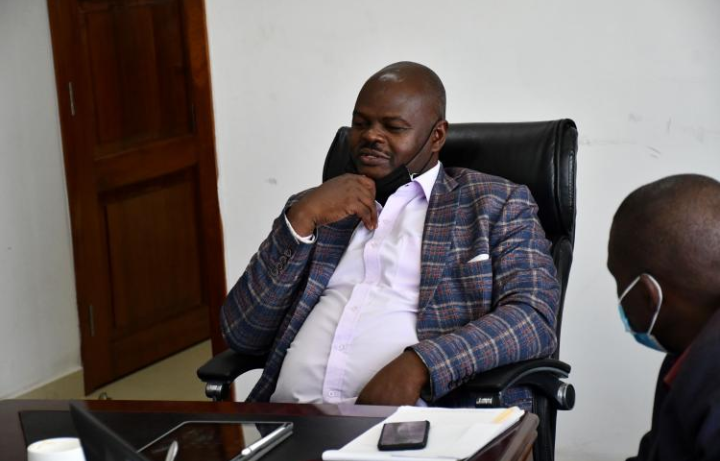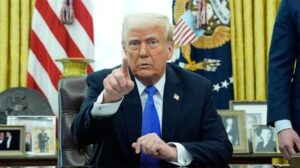The University of Nairobi is currently embroiled in a scandal involving allegations of corruption, power struggles, and a complete disregard for academic integrity.
At the center of this controversy is Brian Ouma, the institution’s Chief Operating Officer (COO), whose actions have raised serious concerns about the university’s leadership and future.
Ouma’s rise to the position of COO has been widely criticized for its apparent illegitimacy.
Reports suggest that his appointment bypassed the necessary processes, with the former Vice-Chancellor, Prof. Stephen Kiama, allegedly appointing him in a manner that flouted the university’s established protocols.
This controversial move has sparked widespread discontent, particularly because Ouma lacks a PhD, a qualification typically expected for someone in a role equivalent to that of a Deputy Vice Chancellor.
As troubling as the circumstances surrounding his appointment are, the allegations against Ouma only deepen.
There are claims that he has actively undermined the efforts of Deputy Vice Chancellors, individuals who have devoted their careers to advancing the university’s academic mission.
Ouma’s actions appear to hinder institutional progress, fostering a toxic environment where personal agendas take precedence over the collective good of the university.
The situation has further escalated with accusations of corruption.
Ouma is alleged to be involved in various corrupt activities, which have cast a dark shadow over the University of Nairobi’s reputation.
What was once an institution revered for its commitment to education and research now risks being seen as a hub for unethical practices and shady dealings.
This has not only damaged the university’s image but has also shaken the trust of students, faculty members, and other stakeholders.
Perhaps the most damaging accusation against Ouma is his reported role in orchestrating the ousting of Prof. Kiama from the Vice-Chancellor position.
Allegedly working with a well-organized “cartel,” Ouma is believed to have played a key role in removing Kiama from office, further cementing his own power within the university’s administration.
This brazen power play reveals the extent of the internal struggles and deep-rooted corruption that plague the institution.
Ouma’s continued presence in such a high-ranking position, despite his lack of academic qualifications and the cloud of corruption surrounding him, raises serious questions about the governance of the University of Nairobi.
His actions are seen by many as part of a broader agenda to consolidate his influence while pushing the university further into turmoil.
The chorus of voices calling for Ouma’s removal and a comprehensive investigation into the university’s leadership is growing louder.
Students, faculty, and concerned citizens are demanding accountability and transparency.
The University of Nairobi now stands at a critical juncture, facing a decision that will shape its future.Will the institution continue to allow individuals like Ouma to erode its core values, or will it rise to the challenge of restoring academic integrity and accountability?
The path it chooses will have a profound impact on its legacy and its role as a center of higher learning in Kenya.
In the coming months, the university’s response to these allegations will be closely watched.
The choice between embracing transparency and reform or succumbing to further decay will determine whether the University of Nairobi can reclaim its status as a respected academic institution or if it will serve as a cautionary tale of how unchecked power and corruption can bring down even the most prestigious of institutions.





















Add Comment